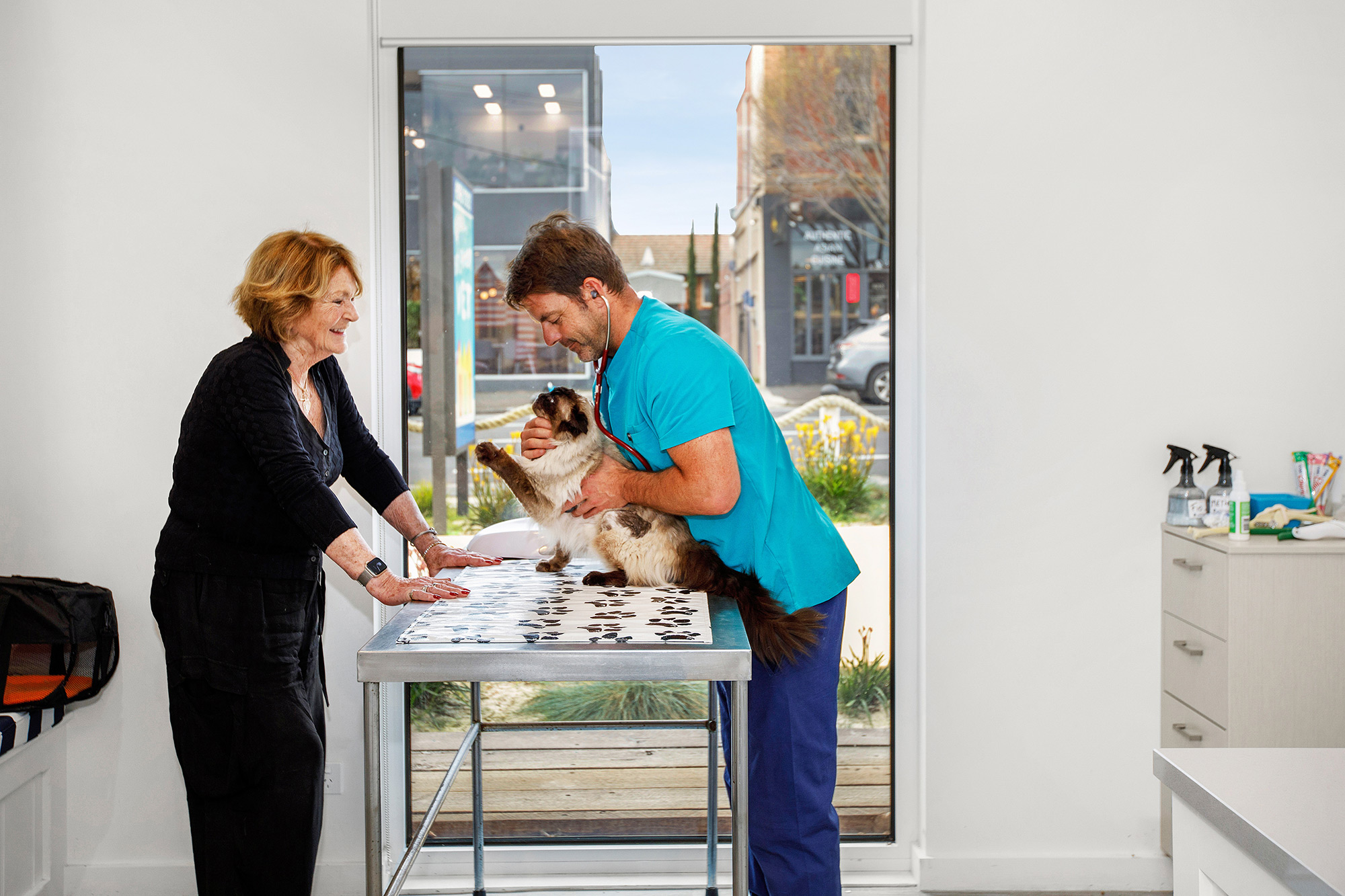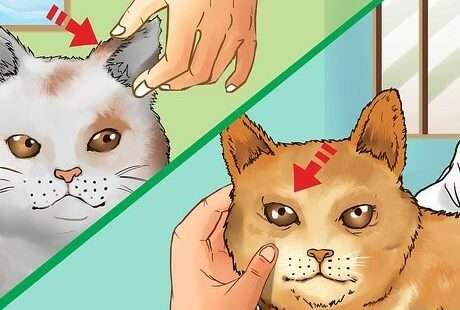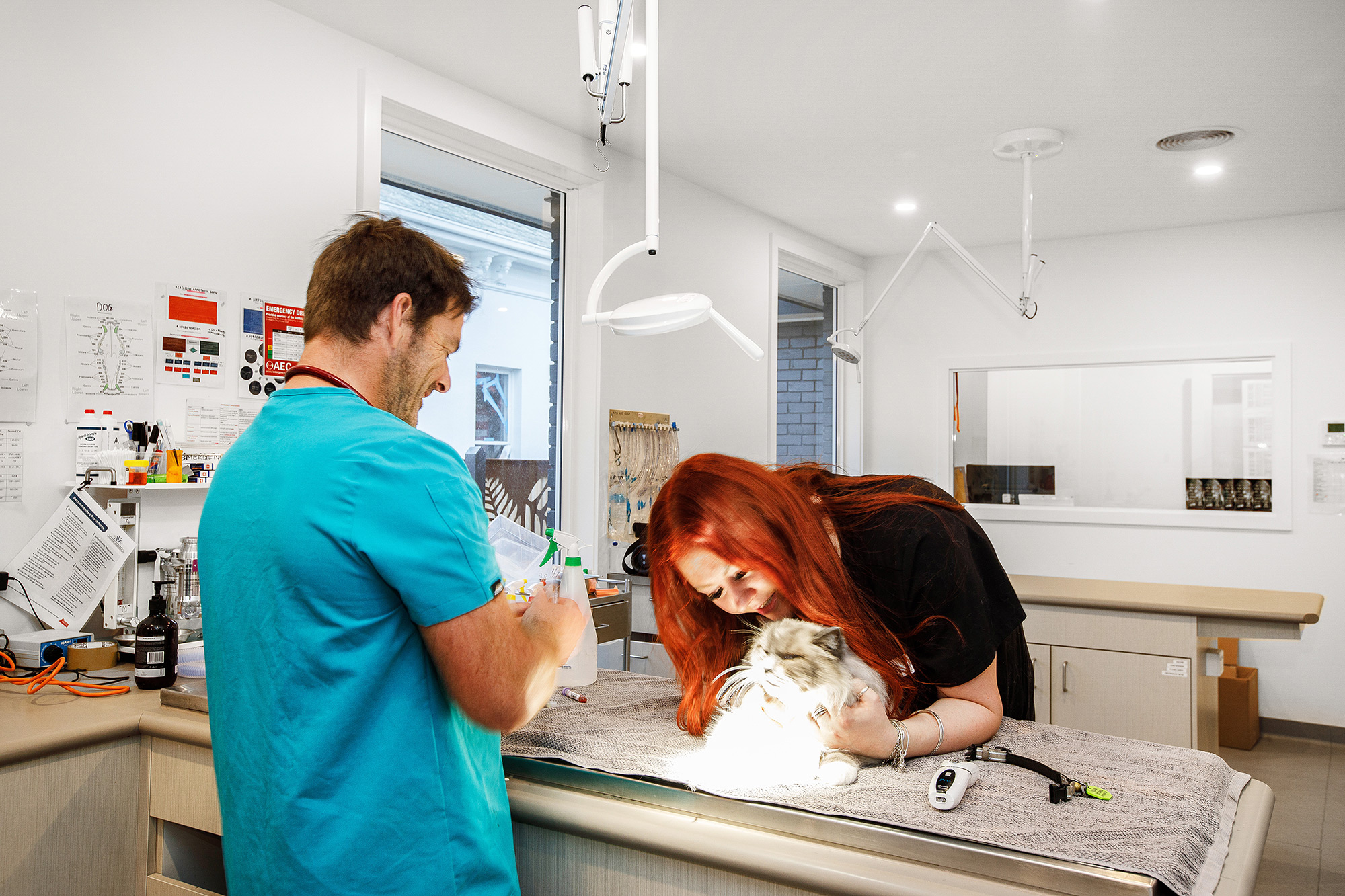Cat care
Before you bring your cat or kitten home, we suggest you contact your local council and enquire about its regulations regarding such things as night curfews, compulsory containment within a property, desexing and microchipping.

A cat’s housing needs are simple. Whilst they will usually find a corner that suits them best indoors or outdoors, provide them with a basket, box or chair in a place where they feel safe and protected. Increasingly, people are using cat enclosures for outdoor cats. Placed in a weatherproof area, they keep them safe from neighbourhood cats and protect local wildlife. Indoor cats generally live longer and lead healthier lives.
It is recommended a scratching post be available for your cat to keep their claws in good condition for climbing and defending themselves. This will also reduce the chances of your furniture being scratched.
Cats like to be clean at all times. As a result, cats can easily be toilet trained if a litter tray filled with dry earth, sand, or cat litter is available. The litter tray should be cleaned daily to remove faeces and the litter itself changed frequently. Ensure the litter tray is placed in a quiet and private location. You may even need multiple trays if you have more than one pet cat. A good rule of thumb is one tray for each cat plus one extra.
All cats need to exercise. As cats naturally like climbing and perching themselves up high, trees and fences, for example, provide good opportunities for them if they have outdoor access. Indoor cats, however, will use furniture to climb and perch. Once again, having a scratch pole or indoor cat gym will give an indoor cat an effective alternative. Providing higher perching locations will also give your cats a more enriched environment.

Ensure a fresh water bowl is accessible at all times, especially if they have a dry food diet. Whilst many cats love to drink cow’s milk, it’s not recommended as they can be lactose intolerant and experience stomach upsets.

Cats require a minimum of one health check per year. Regular visits help us diagnose, treat or even prevent health problems before they become life-threatening. Routine vaccinations, worming and flea control form the basics of feline medical care. We can also provide additional guidance on nutrition, behaviour, training and life-stage treatments available.
We welcome you to book an appointment with us to discuss how to keep your cat in optimum mental and physical health.
